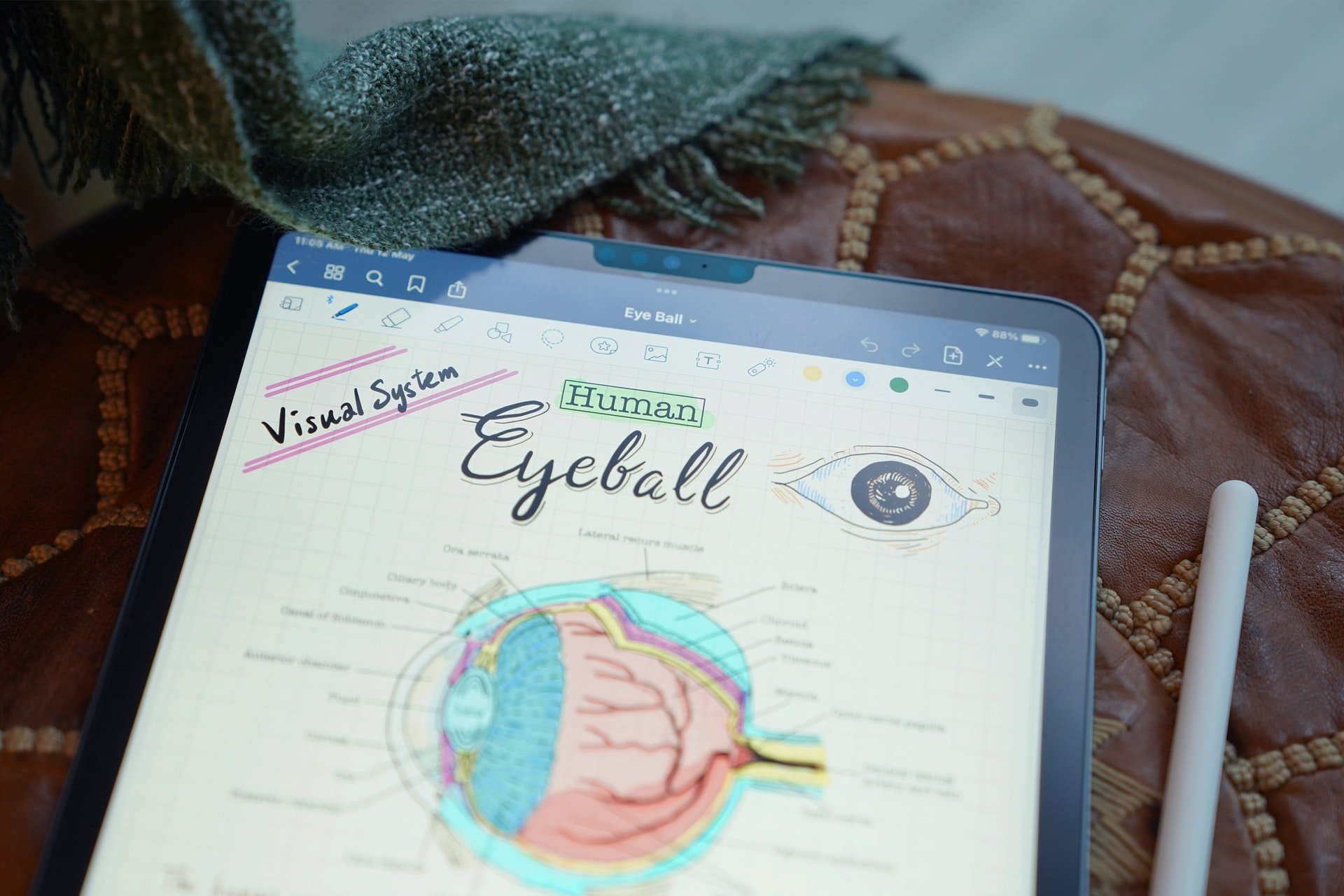10 Tips to Stay Organized in College
Going through university sometimes feels like a circus show where you are the poor chap riding a unicycle on a tightrope and juggling torches in the air. You must keep your balance, make sure you don’t burn yourself out, and do everything looking unphased in front of the audience.
Similarly, balancing studies, a social life, family, and maybe even a job can be too much. On a daily basis, you have to deal with keeping track of all your classes, doing homework, submitting projects before the due date, having fun, maintaining personal relationships, and dealing with other responsibilities. The solution to saving yourself from burnout is learning how to be more organized.
Being skilled in multitasking and knowing what to prioritize at all times is an excellent technique for safely going through college. So read on as we offer you tips on how to stay organized in college online and in person. Adapt the methods we mention into your daily life, and you will deliver a performance worthy of a standing ovation.
Interested in pursuing a degree in California?
Fill out the form and get all the detailed information you need regarding your chosen program.
Why Is It Important to Stay Organized in College?
Analogy aside, learning how to be an organized student can make all the difference in your college journey. Reports show that anxiety and stress are among the primary mental health issues among college students. Some factors leading to that include heavy workloads, poor sleeping schedules, insufficient downtime, and poor time management.
We are not insinuating that with better organizational skills, the stress and anxiety will altogether disappear from your life. However, studies show that staying organized has proven to help reduce cortisol levels in your body—the primary stress hormone. For additional tips, you can read our guide on managing stress.
Of course, another benefit of being organized in college is related to your academic success. Results from a survey show that 87% of students reported that better organizational skills and time management helped them get better grades. Nearly 9 in 10 students recognize the importance of organizational skills to their overall success as they seek ways to improve their time management methods, and so should you.
Furthermore, improving your organizational skills is not something that you will only use in college. Instead, all the time you invest in improving your organizational skills is time you invest in your future. Once you begin working, you will value such skills even more.
10 Tips to Stay Organized in College
Being an organized student helps you meet your academic goals while also making time for yourself, friends, and family. You can do that by taking care of your space, materials, and schedules and using tools like calendars, to-do lists, digitized notes, etc. Read on for ten tips to help you stay organized in college.
Set up a calendar
Calendars are the perfect tool to organize everything and to help you manage your time as a student. Whether you decide to use a paper planner or a calendar app on your phone, you will free up so much space in your head. Not having to remember due dates, tests, appointments, social events, etc., will help you stay more organized and spend your time more efficiently.
Online calendars like the Google Calendar app are convenient because everything is organized neatly on your phone. You have it with you everywhere and can add or remove events anytime. And more importantly, you can set up automatic reminders of important events, so you never miss anything.
Use to-do lists
Besides having a calendar to organize events, a to-do list can take things to the next level when it comes to managing tasks daily. This mainly includes putting the tasks you prioritize first and breaking big tasks into smaller ones so that you motivate yourself and don't procrastinate.
You can use a digital system or bullet journal when setting up a to-do list. However, it doesn't matter which one you choose as long as you update your list regularly and complete your tasks.
Stick to a “realistic” schedule
Sometimes when students make plans, "everything works out perfectly" in their head. However, when it comes to putting those plans into action, they fail to do all the tasks they thought they would.
Being realistic when making schedules is crucial so that you can actually stick to that schedule. For example, if you know you are not a night person, don't schedule your homework at night; try to finish it during the day instead. Or, if Monday is the busiest day at school, know that you will be more tired to read on that day than you would on other days.
Being honest and realistic with yourself will help you stay consistent and organized and increase your productivity.
Keep your notes organized–digitize
For those interested in knowing how to be an organized student, keeping your notes organized is a big part of it. As note-taking is essential for every class, having clear and organized notes you can go back to will make studying for exams more manageable and more efficient.
No matter what system you use for it, digital note-taking will help you organize, edit, or find information easier. You can add comments, highlight info by color, etc. In addition, you can access your notes anywhere and anytime without needing to keep notebooks with you.
Furthermore, if you're one of those who like writing your notes by hand, you can still digitize them by using several apps online.
Keep your class materials organized
There are different ways to keep your materials organized, but the simplest one is to organize them by class. Group all information for one class together, and keep a binder for each class.
For example, put notes, handouts, the syllabus, completed tests, and other possible materials from one class in one binder. You can use a pocket folder if you don't want to use a binder. Furthermore, color coding your binders, folders, and notebooks by class will help you keep them organized and find everything easier.
In addition, arrange your computer folders to keep your materials organized digitally too. Create folders for each term and subfolders for each course. You can go on creating subfolders for notes, essays, etc.
Keep your study space tidy
They say that a cluttered desk is a sign of a cluttered mind. This proverb holds as psychology studies show that clutter causes stress, partly due to the excessive visual stimuli and partly because it signals to our brains that there is unfinished work we are supposed to do. Further studies showed that task performance in subjects with a tidy space was much better than those in disorganized ones. Thus, it is concluded that attempting to study around clutter makes it even harder for the brain to focus on processing information and finishing academic tasks.
So, start by making it a habit to make your bed every morning. It's a small task, but it can motivate you to do so much more. Every day put things back in their place every time you use them. This way, you can find them easier and keep your space from becoming messy.
In addition, always go through materials to get rid of what you no longer need so that you do not get overwhelmed by too many papers. And remember to put tidying up in your schedule, weekly or whenever you see fit.
Prepare your tools for class
How awful is it when you are already running late and can’t find the notebook you were looking for, or you pick one of your many black notebooks only to find out when you sit in a class that it is for another subject? Well, no worries! There are so many fun and colorful ways to stay organized for class. Once you begin using binders, folders, highlighters, labels, and more, you will realize how messy everything used to be.
As we mentioned above, use different colors or labels to correspond to each class. This way, no matter how hectic everything gets, you can quickly sort through everything with one glance at your books, notebooks, or note papers. Have a small case within your bag to put pens, pencils, highlighters, and other smaller stuff, so that you find them easier.
Avoid interruptions when studying or working
As tempting as it is to take short breaks to check your social media or text with a friend while you are both studying, being distracted so frequently and switching focus whenever you begin to concentrate on your revision will not prove effective. A great tip for staying organized is to have study sessions without your phone, no TV, and only use your laptop for studying.
You don’t need to distance yourself from the online world all day. Although, if you can, that would be great as well. The point of it all is to try and stay focused only on your studies for at least two hours, and after that, you can have a little break to rest, catch up with the world, eat something, and regain energy.
Prepare for the next day
The syllabus the professor provides at the beginning of the semester is a great tool you should use. Through this syllabus, you can familiarize yourself with the structure of each class and know what to expect from each lecture. We advise you to check the syllabus or your notes and see what you will discuss in the following class. This way, you can get a head start on reading the material, exploring the topics, thinking of unclear notions, and preparing questions to bring up with the professor.
This tip applies to many other things besides lectures. From thinking about what you will wear to the place you’ll go to eat between classes—creating a general outline, even if only in your head, of how you want your next day to go will help reduce wasted time contemplating such things the following day as you risk being late.
Review your previous week and plan for the next
Lastly, we advise you to take some time at the end of each week and consider what you have done. By dedicating time to reflecting on what went well during the week, what went wrong, and how you can be better prepared next time, you can begin approaching tasks a certain way and avoid making the same mistakes. Furthermore, when you review your week, you ensure that all your hard work is not going to waste and helps you toward your goals. Otherwise, you might want to bring some changes next week.
Once again, two tools that are extremely helpful if you are interested in incorporating such a step into your weekly routine are calendars and planners. They help you keep a record of all you have done during the week, plan for the future, and even deduct valuable insight such as the time of day or week when you seem to be most productive. Stay one step ahead and always know what is to come so you can be best prepared for everything.
Conclusion
Understandably, you need to slack off sometimes. Some days are more complicated than others, and you might need to take a break from everything to catch up on some much-needed sleep. However, being organized will help reduce such days. Making a plan about your day, week, month, year, and life will make going through it much more manageable.
Benjamin Franklin, one of the most accomplished people, said that you earn an hour for every minute you spend organizing. So, make use of the tips we have provided. You cannot buy time, but you can save and make the most out of it by being organized.


